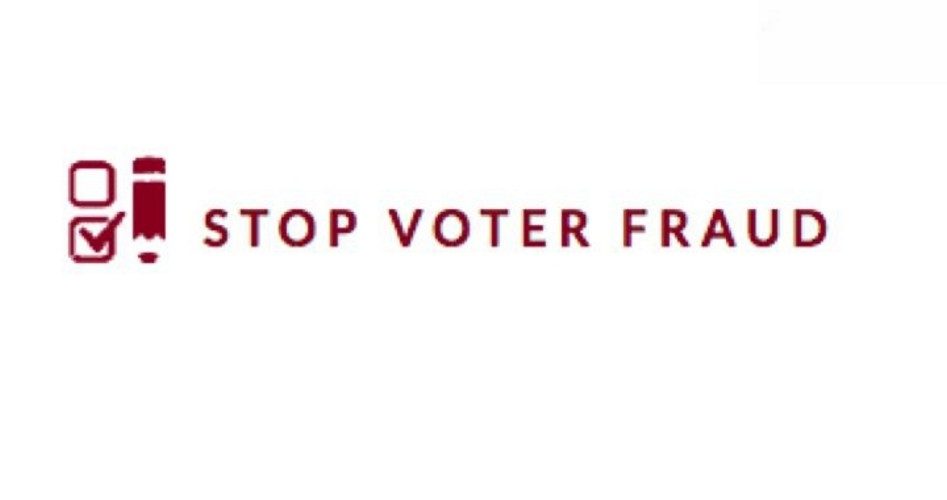
When President Trump or other Republicans express concern about vote fraud and support safeguards such as voter I.D. requirements, Democrats ordinarily respond that such fears are unfounded, arguing that vote fraud is practically non-existent in the United States.
Yet when it comes to the governor’s race in Georgia, suddenly the Democrats seem to be reversing themselves, claiming that their candidate, Stacey Abrams, has been cheated out of the election. This claim comes despite the Republican candidate, Brian Kemp, holding a commanding lead of 18,000 votes over the number needed to avoid a run-off December 4 with Abrams.
Allegra Lawrence-Hardy chairs the Abrams campaign and has over 30 lawyers working to reverse the election results, via charges of vote fraud. (Lawrence-Hardy was one of the many lawyers that the Al Gore campaign used in 2000, when it was claiming Gore had won Florida and its then-25 electoral votes, which would have put Gore rather than Texas Governor George W. Bush into the White House). Lawrence-Hardy is claiming that some Georgia voters were disenfranchised, and are hoping to get the case into court. Georgia election law stipulates that a candidate who has lost the election can challenge the results on the basis that there has been “misconduct, fraud or irregularities” on a scale large enough to “doubt the results.”
Kemp, who was Georgia’s secretary of state until he resigned two days after the election, expecting to be certified as the winner of the election, has dismissed Abrams’ efforts as a “publicity stunt,” adding that her refusal to concede is just a “ridiculous temper tantrum.”
Almost four million people voted in the contest, but Abrams’ team is arguing that at least 18,000 Georgians were either not allowed to vote, or had their ballots thrown out.
Abrams’ defeat is considered a blow for the strategy of running as a strong liberal, not as a moderate Democrat. The thinking is that this would bring out new voters to the polls. Of course, it could be that some of these “new voters” were Georgians who had not bothered to properly register to vote — at least that is what Kemp and his supporters would most likely argue in response.
The basis for Abrams’ challenge is three-fold. Her team argues that some “new” voters (poorly informed) stumbled into the wrong polling place, but still should have been able to vote. Another argument being made is that poll workers failed to offer unregistered prospective voters — who could not prove they were legitimately registered to vote — provisional ballots. Finally, they argue that long lines discouraged some potential Abrams’ voters from voting.
While this all may seem somewhat ridiculous, holding up the certification of Kemp as governor-elect, this is the mindset of far too many Democrats today. Elections laws designed to prevent fraudulent voting are, in effect, “suppression” of potential voters — almost always those who would vote for progressive candidates such as Abrams.
Even Cathy Cox, a Democrat who served as Georgia secretary of state from 1999-2007 seemed to dismiss the Abrams’ arguments. Now serving as dean of the Mercer University’s law school, Cox explained that Georgia law makes it difficult to get a court to reverse the apparent outcome of an election. “I would say with pretty great confidence,” Cox said, “there has probably never been an election … without some irregularity, where some poll worker did not make some mistake.”
But did that change the outcome of the election? Bluntly put, with an 18,000-vote difference before Abrams could even make it into a run-off, are there enough problems to justify throwing out an election?
Is there enough actual doubt as to who really won this election? “Would a reasonable person have reason to doubt this election?” Cox asked. “Not would a hard-core partisan Democrat doubt a partisan Republican opponent.”
This dispute in Georgia, along with the dispute in Florida with that state’s Senate race are powerful illustrations as to why Americans should reject calls for abolishing the Electoral College method of choosing a president and for using a national popular vote to elect the president. After all, in 1960 Senator John Kennedy narrowly bested Vice President Richard Nixon by a little over 100,000 votes in the national popular vote. Can one imagine a presidential election today, determined not by the Electoral College, with its state by state popular vote, but by a national popular vote?
Were one major party’s candidate to win by anything less than hundreds of thousands of votes nationally, we could expect the petty challenges in Georgia and Florida to be used all over the country, in an attempt to alter the outcome of the presidential election. If activists are willing to use such tactics to determine the winner of governor of Georgia, just how willing would they be to do so with a presidential election?
While it is hypocritical to oppose valid safeguards against fraudulent voting, such as Voter I.D. requirements, arguing that voter fraud hardly exists, then turning around and saying it does when it suits your case, such hypocrisy is not uncommon in politics.
Image: Screenshot from ga.gov




